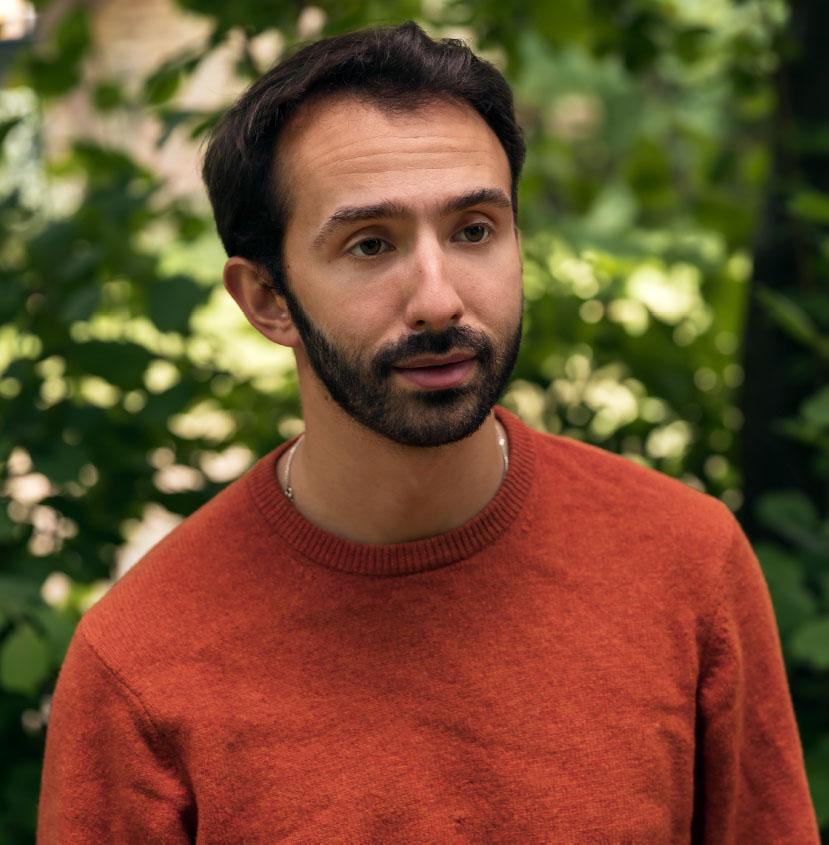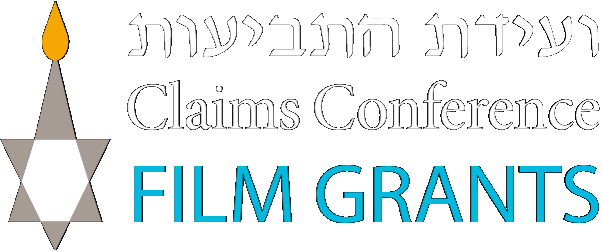
Disappearing Stories (Narrative)
About the Director
Born and raised in Copenhagen, Jonas Lajboschitz graduated from the National Film School of Denmark as a screenwriter in 2021. He lives with his girlfriend and 30 closest family members in a tightly knit Jewish household, a dynamic that shapes his storytelling around family, secrets, and moral ambiguity. While working as a screenwriter, he shifted his focus to directing. His two short films have screened at several festivals, and his latest is shortlisted for a Danish Academy Award. With support from the Danish Film Institute, he is developing his debut feature, set in Copenhagen’s small Jewish community. The story follows a respected rabbi who hides his role in a tragic accident in the synagogue. A lie that protects his reputation but erodes his bond with his son. Jonas is a member of the chevra kadisha and gives school tours of the Copenhagen synagogue twice a month.
Synopsis
In 2011 Poland, Jan (85), reunites with Mendel (80), the Jewish boy his family saved during the Holocaust. As relatives come together in joy, Jan wrestles with guilt over a hidden truth: he told a Nazi where Mendel’s parents were hiding. Jan wants to confess, whereas his wife urges him not to. As Jan and Mendel revisit the forest where Mendel’s parents were shot, Mendel asks questions that put Jan’s guilt to the test.
Director’s Statement
Growing up in Copenhagen’s small Jewish community, the escape to Sweden was the Holocaust story I knew best as a child. My grandparents were Jews of Lithuanian or Polish descent but born in Denmark or Sweden. This circumstance likely spared my direct family from being killed during the Holocaust. As I got older, I learned about the camps and read Primo Levi, Imre Kertész, Viktor Frankl, and Elie Wiesel. I began writing a novel about a family whose father survived the camps, and how his children and grandchildren are differently shaped by his experiences (set for publication in fall 2026 by People’s Press, a Danish publishing company).
I also visited Auschwitz, and although it was a harrowing experience, it felt strange to see people eating pizza and arriving in tour buses right by the site. Perhaps it is not only because Auschwitz has become a place for visitors, but rather that Auschwitz has drawn so much attention, that people don’t know or don’t care about all the other atrocities that happened during the Holocaust. Most people don’t know that around 2 million people were killed in mass shootings in forests, fields and villages. As fewer survivors remain and the Holocaust shifts from living memory to history, I see an urgent need for untold stories from outside the camps and ghettos.
In a time where the Holocaust is often trivialized or even denied, it is vital that the story in my film could have happened. I dislike works that heavily fictionalizes the Holocaust. This distorts the real events and is ultimately counterproductive.
Besides shedding light on what happened in the forests, I also want to erase the ‘good vs evil’ distinction that I often find in films about the Holocaust. My film doesn’t aim to judge Jan but allows for the audience to draw their own conclusion. Right and wrong rarely have simple answers, and I hope the film can feel relatable on a human level.
